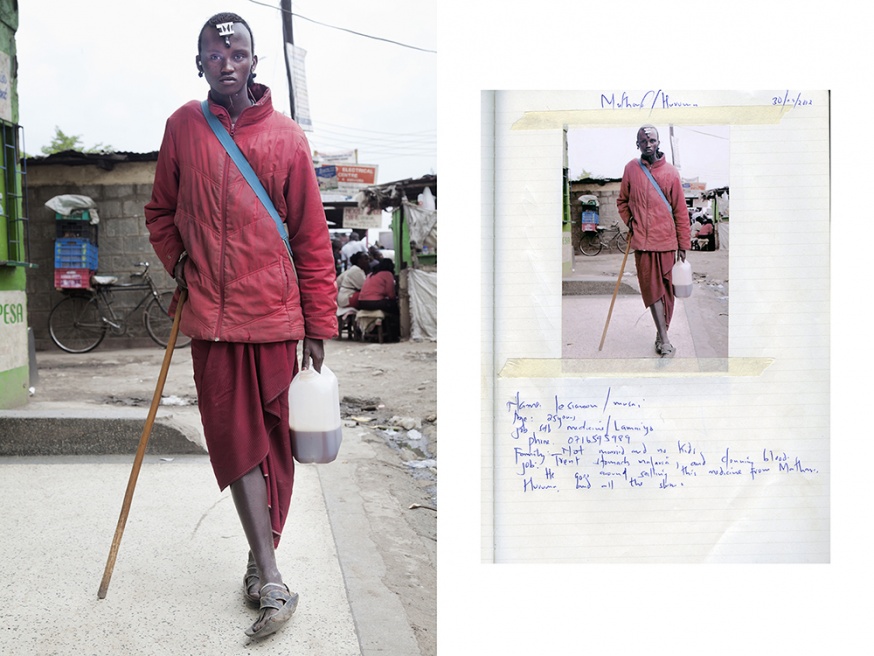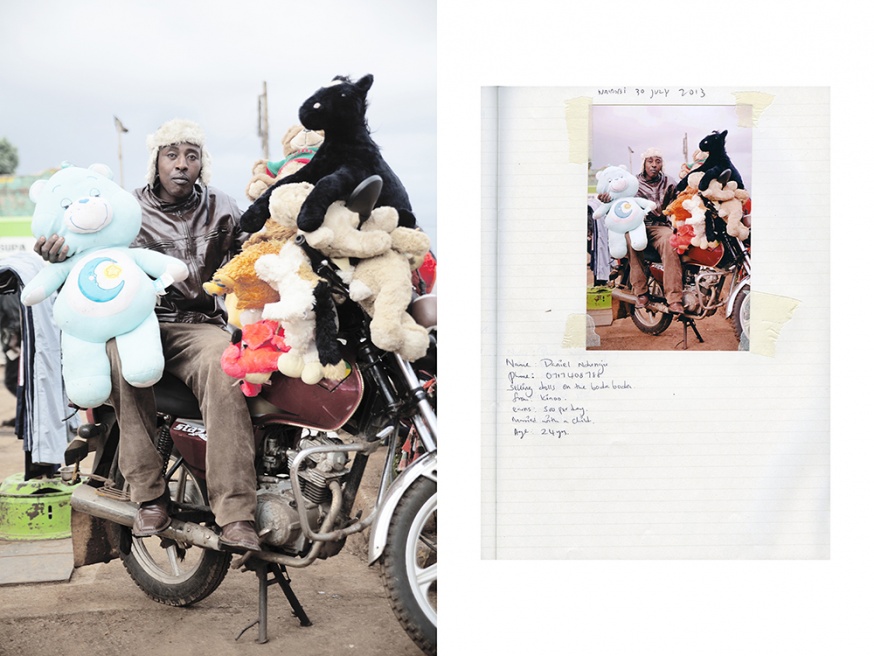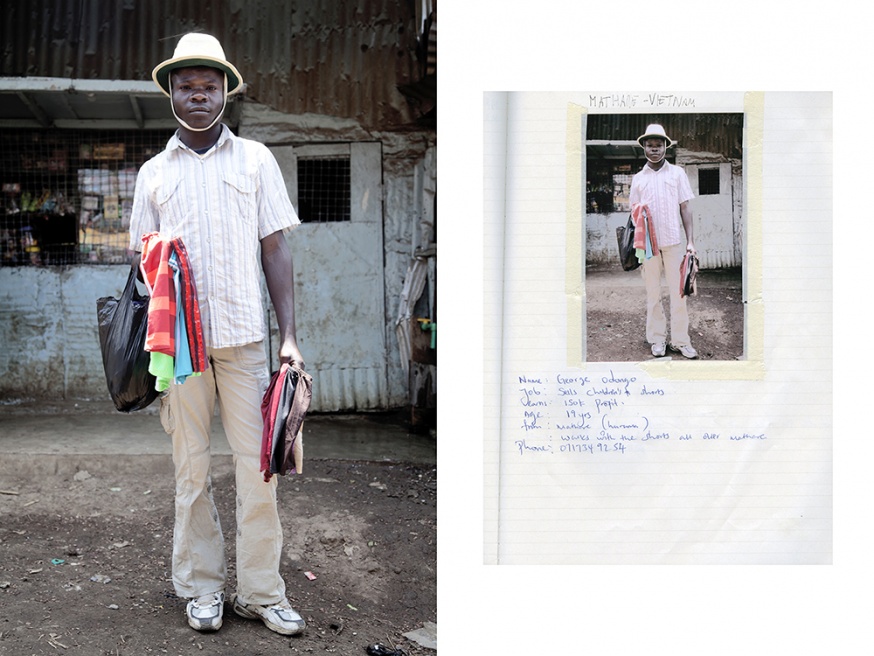Selling on the street, going from door to door, is one of the most common trades in the African world, in both the rural areas and the slums of the big cities. The seller who goes around with the goods on his back is, in that situation, characteristic of those who are accustomed to fending for themselves and coming up with their own job.
It is the crude spin-off of a changing, evolving economic process. The slums are not only places of extreme survival: a more careful look at them reveals that they are hubs of self-generated, continuously expanding economies. The seller and his wares are an “indicator” of the consumption, the needs and even
the whims of a community. The title of the series of portraits of the street vendors – “Nomadic Sellers” – is stolen from how a seller described himself: “I sell nomadic.” From their testimonies, we learn that those who sell pesticides earn more from a day’s work – 1,000/2,000 shellini (10, 20 euros). Those who mend broken plastic tubs, using burning embers in a primitive hot-melding technique, earn only a tenth of that. The Masai sell traditional medicines, often herbal brews transported in white bins, for 10/20 shellini (0.20 euro) per glass. This is a small nation of artisans who display goods produced in the slums, and sellers of goods (such as women’s shoes) made from donations by charity foundations. 89 The handmade shoes are created from pieces of rubber tyre. In other cases, you can find Chinese products, such as lace lampshades, being sold at knockdown prices. But there are also many who sell SIM cards for mobile phones, given that the phone industry in Africa is perhaps one of the biggest expanding markets, and someone has understood the potential of a widespread sales network in a ghetto of more than half a million people. Those who sell on the streets of Mathare, and across Africa in general, testify to the strength of collective desires that are not always as primitive as might be expected, instead revealing a consumerist need not unlike that in the rest of the world.
© Filippo Romano





















